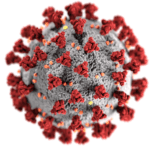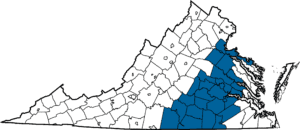Pandemic Challenge FAQs

General Frequently Asked Questions
When is the Competition?
Teams will be presented with the challenges on during a kick off session on March 14th (tentative). Teams will work with mentors and facilitators throughout the challenge, with a symposium on May 24th.
We want teams to have an opportunity to really make an impact on their problem, and would be thrilled to see projects grow post symposium.
Who Can Participate in the Pandemic Challenge?
The Challenge is open to all, but the IEEE Richmond Section can only provide financial assistance to teams located primarily within the boundaries of the Richmond Section. The person who requests reimbursements for your team must reside within the boundaries for the Richmond Section.
The localities that are included in the Richmond Section are:
- Amelia (County)
- Brunswick (County)
- Caroline (County)
- Charles City (County)
- Charlotte (County)
- Chesterfield (County)
- Colonial Heights (City)
- Cumberland (County)
- Dinwiddie (County)
- Emporia (City)
- Fredericksburg (City)
- Goochland (County)
- Greensville (County)
- Halifax (County)
- Hanover (County)
- Henrico (County)
- Hopewell (City)
- King George (County)
- King William (County)
- Lunenburg (County)
- Mecklenburg (County)
- New Kent (County)
- Nottoway (County)
- Petersburg (City)
- Powhatan (County)
- Prince Edward (County)
- Prince George (County)
- Richmond (City)
- Spotsylvania (County)
- Stafford (County)
- Sussex (County)
- Westmoreland (County)
What kinds of participants is the Challenge looking for?
Participants in the Challenge generally fall into one or more of the following categories:
- Problem Solvers – High school students, university students, and early career professionals who will team up to solve the problems.
- Mentors – Experienced professionals who will help Problem Solvers understand how engineers solve real-world problems.
- Problem Owners – People or organizations that have real-world pandemic-related problems that need to be solved.
- Co-Sponsors – Companies or organizations that are willing to donate funds or services that can be used by teams working on the Challenge.
It is possible for a person to be in more than one category. For example, people or organizations that have real-world pandemic-related problems that need to be solved and who understand how engineers solve real-world problems might decide to be both a Problem Owner and a Mentor or a Problem Owner and a Co-sponsor.
What kind of financial assistance is available to teams?
The IEEE Richmond Section will reimburse teams for up to $100 for money that they spend working on a solution to their chosen problem. The money will be available on a first reserved, first served basis. The Richmond Section will also help connect teams with co-sponsors of the event who may be willing to provide free goods or services to help teams with their proposed solutions.
Who is IEEE?
IEEE (pronounced “EYE-triple-e”) is the world’s largest technical professional organization dedicated to advancing technology for the benefit of humanity. It is a non-profit, global organization of over 400,000 professionals in the fields of Electrical and Electronic Engineering, Computer Sciences and Information Technology, and related fields of Physical Sciences, Biological and Medical Sciences, Mathematics, Technical Communications, Education, Management, and Law and Policy. For more information on some of the areas that the IEEE is involved in, please see https://www.ieee.org/about/at-a-glance.html.
Problem Solver FAQs
How will teams get reimbursed for their expenses?
Each team will need to have one person who they designate as being responsible for requesting reimbursements from the Richmond Section. This person must live within the Richmond Section. (See the General FAQs for the details on which parts of the state of Virginia lie within the Richmond Section.) This person will collect the receipts for their team and submit an expense reimbursement request using SAP’s Concur (NextGen) expense reporting program. Concur is widely used by companies to handle expense reports. Expense reports can be submitted from your computer or from your smartphone. Complete instructions for how to file expense reports will be provided to the person who your team designates as being responsible for reimbursements once their identity has been confirmed.
In addition, co-sponsors may choose to help fund some projects. Any reimbursements that come from co-sponsors will be handled directly between the teams and the co-sponsors.
Mentor FAQs
What are Mentors expected to do?
Mentors are expected to help Problem Solver teams with the process of discovering and implementing solutions to their chosen problems. They should not just be presenting the solution to their Problem Solver team and asking them to implement it.
Mentors may be experienced in a particular technology that can be used to solve a problem or they may be experienced in how the product development process works. They do not need to experts in “everything.” Teams may choose to have multiple Mentors who help them with different aspects of their proposed solution.
Mentors who work with children will need to comply with the IEEE “Requirements for Groups Working with Children.” (These requirements can be found under the “Other Useful Resources” section of this website.) Mentors who do not wish to be bound by requirements for working with minors can still be Mentors but may not mentor any Problem Solver teams that include minors.
Problem Owner FAQs
What are Problem Owners expected to do?
Problem Owners need to describe the problem that needs to be solved. They do not need to describe the exact solution to the problem, but they do need to describe any key characteristics that the solution needs to satisfy. For example, if the solution needs to be portable, they would need to say so. Also, the Problem Owner should describe who the solution will be for and why they need the solution. This is not meant to be a “justification” for the solution. It is meant to help the Problem Solvers understand whether their proposed solution is viable. For example, if the solution is meant to be used by an in-home healthcare nurse, the Problem Solving team may look at their proposed solution and say to themselves “But this won’t work for an in-home healthcare nurse because…”
Problem Owners should also be willing to respond to Problem Solvers’ questions.
Problem Owners are not expected to pay for the Problem Solver teams to work on solutions to their problems. Any Problem Owners who do want to help teams financially or with free goods and services are invited to also register as Co-sponsors.
Co-sponsors FAQs
What are Co-sponsors expected to do?
Co-sponsors are companies, groups, or organizations that choose to work with the IEEE Richmond Section on the Pandemic Challenge by offering Problem Solver teams some type of free goods, services, or funding that they can make use of while working on the Pandemic Challenge. Co-sponsors will be acknowledged on this website and in the various forums that we use to promote the event.
Co-sponsors must agree to abide by the IEEE Requirements for Groups Working with Children (see the link in the Useful Resources section of this website) or an equivalent set of requirements. For example, a school system that provided some type of goods or services to Problem Solver teams could make use of their own internal requirements for working with minors. A company that chose to not work with minors could impose that as a requirement for providing assistance to Problem Solver teams. The important thing is that any children who do participate must be able to do so in a safe way.

